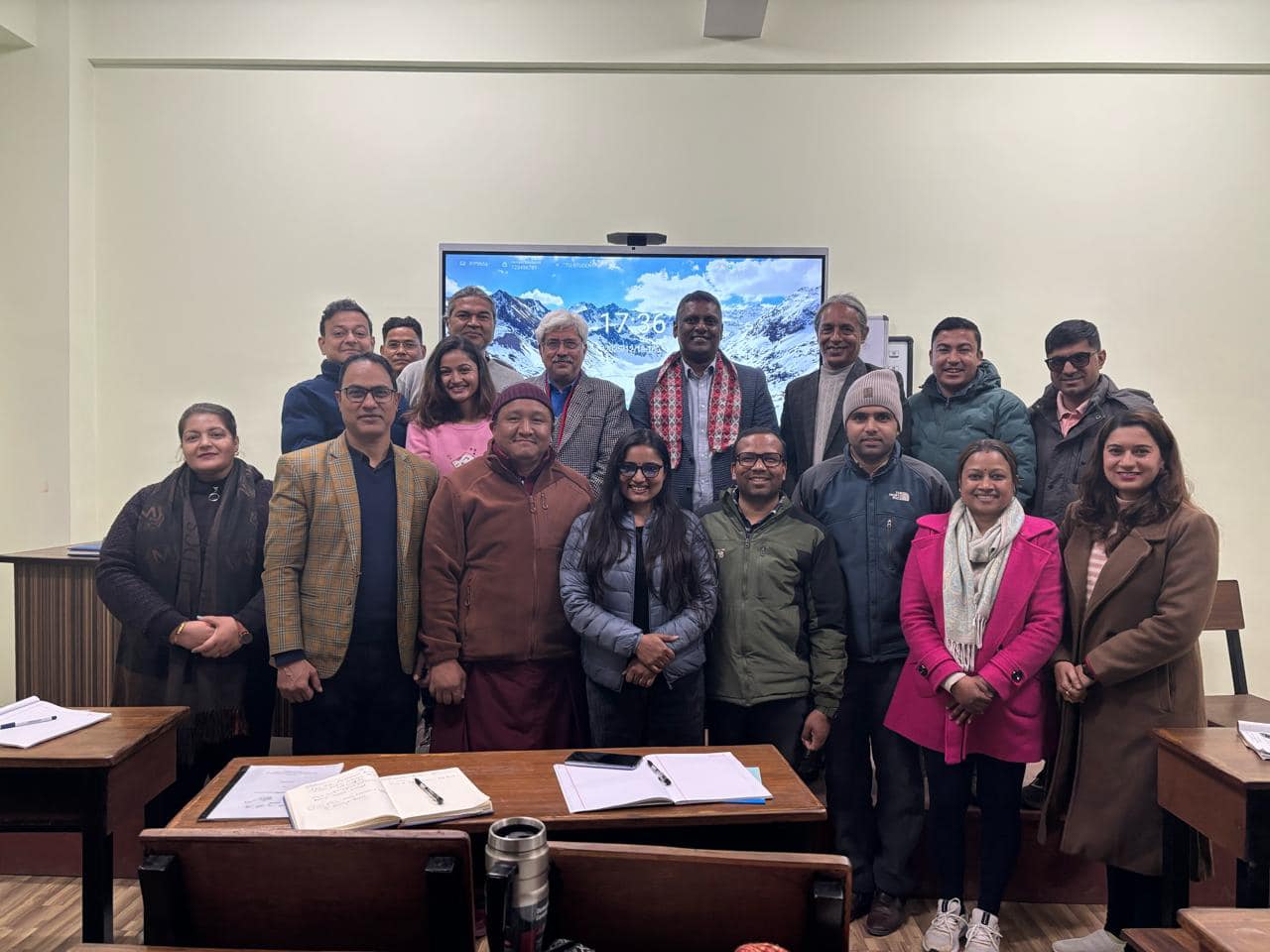Award-winning journalist Scott Pelley once commented, “Democracies succeed or fail based on their journalism.” These words emphasize the crucial role of journalism, not just in informing the public but in shaping the identical foundation of a democratic society. Thus, the health of any democracy hinges on the veracity of its media. It can serve as a watchdog that protects freedom or a weapon that destroys it. Correspondingly, free and fair elections are essential for maintaining democracy. They are the ultimate litmus test that determines whether a nation upholds democratic values or slips into authoritarianism.
Given this context, the function of journalism and the behavior of journalists and media outlets during election seasons is critical. With the rise of new media and social media, the aforementioned role and behavior have become more important. Primarily, it is obvious that information disorders, hate speech, and AI-generated contents in the online realm make a serious and detrimental contribution to the process of elections not only in the global South but also in the global North.
During multiple recent elections, Sri Lanka was subjected to a number of disinformation and hate speech operations, particularly online. Furthermore, it is clear that such campaigns had a significant impact on the overall outcome of the elections. For example, during the 2018 local government elections, the number of coordinated anti-Muslim disinformation and hate operations surged dramatically. The 2019 presidential election, which brought Gotabaya Rajapaksa to power, was heavily influenced by a multitude of disinformation efforts centered on anti-Muslim and anti-Tamil animosity, as well as falsified allegations about national security. According to the UN, damaging speech in Sri Lanka spiked by 113%, coinciding with the Sri Lankan Parliamentary Election on November 14. As noticed, during that election season, there was a large increase in hate speech directed toward ethnic and religious minorities, as well as a surge in gender-based damaging speech directed primarily at women.
As a result, countering information disorders and hatred both online and offline is crucial, especially during Sri Lanka’s election seasons. Several international, regional, and domestic groups have contributed to it. One such organization is the Media Law Forum Sri Lanka. The MLF, a local non-governmental organization, collaborates with various stakeholders, including journalists, media actors, media organizations, media outlets, academics, and other civil society groups, to protect free expression in various approaches , including providing legal assistance, conducting public awareness campaigns, engaging in capacity building, and networking relevant stakeholders. Since its inception, MLF has been actively engaged in strengthening ethical and accurate election reporting, as well as combating disinformation and hate speech, particularly during election season.
Subsequently, MLF has initiated a project, “Strengthening Resilience against Disinformation in Sri Lanka” with the support of the European Union and in collaboration with Democracy Reporting International and Factum. The main aim of the project is addressing critical gaps in Sri Lankan media organizations’ ability to navigate evolving electoral legal frameworks. In this process, more consideration is given to challenges posed by revised election media guidelines, election-related laws to counter hate speech, misinformation, and disinformation, new campaign financing laws and digital political advertising, and ethical and legal considerations surrounding generative AI use in elections.
The project’s implementation involves both standard and new methodologies. It was essential to prepare a training module and other supplemental reading materials, including specific papers on hate speech and misinformation laws. Choosing the most relevant legal documents, such as acts, regulations, and gazette notifications, was also critical. All of these activities were carried out following consultation with subject and practical experts.
Given the varied character of the participants, it was imperative to decide on the organization of the information sessions. The sessions were thus planned with a dual approach. The MLF has effectively applied the first strategy, newsroom visits, in various past initiatives. Ten capacity-building sessions were thus prepared for Colombo as newsroom visits; another ten were arranged for regional areas to serve both online and offline reporters working outside the capital.
Ahead of the 2025 local government election, at the end of April, MLF effectively carried out six newsroom inspections. Along with subject matter experts, this creative method gave media professionals and reporters a wonderful chance to interact personally with legal and regulatory concerns pertaining to elections. MLF guaranteed great degrees of involvement, especially among those actively engaged in election reporting, by arranging these sessions inside the journalists’ newsrooms.
The journey began at The Morning News Paper, one of Sri Lanka’s premier English-language dailies. This session marked a departure from traditional training by providing answers to legal matters in which they were already involved. Moreover, possible legal matters in modern journalism, with special reference to election reporting, were also thoroughly discussed during the session.
The session at Virakesari, Sri Lanka’s leading Tamil-language media house, addressed the often-overlooked challenges of election reporting in diverse linguistic communities. The session explored deep cultural nuances and empowered journalists to direct regional political advertising while maintaining journalistic integrity. This culturally adapted approach proves particularly intriguing in Sri Lanka’s multilingual landscape, where election reporting must vibrate with different communities while maintaining ethical standards across language barriers.
The broadcast media sessions at Supreme TV and Neth FM Radio undertook the real-time challenges that audio-visual journalists face during election coverage. Supreme TV’s session was particularly pioneering; it discusses generative AI tools and their impact on election reporting. Detecting manipulated audiovisual content and related legal approaches were key concerns during the session.
Meanwhile, the Neth FM Radio session addressed unique challenges that have been dealt with by them. One of the key issues is managing live call-in programs during election periods. This focused training and legal empowerment on audience participation management demonstrates the program’s attention to practical, on-the-ground challenges rather than theoretical concepts.
The digital media sessions demonstrated the innovative nature of the newsroom visits. News 19 and News Center, two prominent digital platforms, received specialized legal knowledge on using AI and data analytics for election coverage. These sessions were also concerned with using new technologies ethically and effectively. Empowering journalists to use new media platforms ethically while maintaining accuracy shows how the Media Law Forum is preparing Sri Lankan media for future challenges.
Another significant aspect of this initiative is its gender-balanced participation. Across all sessions, female journalists and media actors constituted approximately 40% of participants. The approach indicates commitment to gender diversity in election coverage and ensures multiple perspectives contribute to election reporting, inspiring the overall media landscape.
Every session incorporates generative AI, demonstrating the program’s progressive approach. The program not only incorporated new technologies but also developed ethical guidelines for their application. Many media training initiatives across the globe are still implementing this well-rounded strategy.
Financial transparency in political advertising, particularly on digital and social media platforms, has become a critical concern in contemporary elections, where misattributed or anonymous campaign spending can significantly influence voter perceptions. In response, the initiative placed a strong emphasis on the importance of reporting under campaign finance laws across all media channels. This focus was well received, as it addressed a notable gap in the legal understanding of journalists and media professionals.
Unlike theoretical one-sided teaching and listening, these newsroom visits included scenario-based activities demonstrated by actual election coverage issues. In this process, journalists improved their talents in controlled contexts, from managing efforts to combat information disorder online to handling live broadcasting events.
The outcomes of this program extend far beyond individual skill development, and it directly engaged with 90 journalists in six major media outlets. By that, the Media Law Forum has built a more resilient media ecosystem capable of resisting the pressures of election coverage.
While Sri Lanka approaches local government elections, the impact of this training is expected to be reflected in more accurate, balanced, and culturally sensitive election coverage. Supported by the European Union and carried out in association with Democracy Reporting International and Factum, the Media Law Forum’s program models how media training may change to meet modern demands.
The strength of this initiative primarily lies with its understanding that effective election coverage requires a nuanced understanding of legal frameworks, technological developments, and cultural dynamics.
In an era where truth often struggles with sensationalism, initiatives like this offer hope. They demonstrate that with the right preparation, legal insight, and ethical commitment, journalism can rise to the demands of modern election coverage, ultimately serving the public interest with integrity and purpose.




